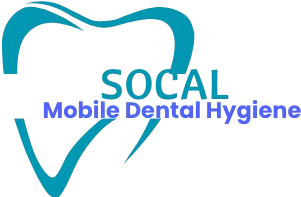A bright smile isn’t just about confidence and beauty—it also reflects your overall health. Dental hygiene plays a pivotal role in maintaining healthy teeth and gums while preventing a host of oral and systemic diseases. By prioritizing proper dental care, you’re not only safeguarding your oral health but also enhancing your overall well-being. This article delves into why dental hygiene is essential for a healthy smile and offers actionable steps to maintain it.
The Connection Between Dental Hygiene and a Healthy Smile
Dental hygiene encompasses daily habits and professional care to ensure the cleanliness and health of your teeth and gums. A healthy smile isn’t merely about aesthetics; it’s about ensuring your oral structures function optimally. Poor oral hygiene can lead to conditions like cavities, gum disease, and bad breath, which impact your smile’s appearance and overall health.
Additionally, scientific studies highlight the mouth-body connection, showing that oral health is closely linked to systemic health. Neglecting dental hygiene can contribute to issues like cardiovascular disease, diabetes, and respiratory infections. A healthy smile is, therefore, a sign of robust oral and physical health.
Consequences of Poor Dental Hygiene
Failing to maintain proper dental hygiene can lead to numerous problems:
- Tooth Decay: Plaque buildup causes cavities, leading to tooth sensitivity, pain, and potential tooth loss.
- Gum Disease: Gingivitis and periodontitis occur when plaque hardens into tartar, causing inflammation, bleeding gums, and bone loss.
- Bad Breath: Persistent bad breath, or halitosis, is often a result of bacteria buildup from inadequate oral care.
- Tooth Loss: Neglected oral hygiene weakens the gums and bones supporting your teeth, increasing the risk of tooth loss.
- Systemic Issues: Bacteria from untreated gum infections can enter the bloodstream, exacerbating chronic health conditions.
Read Also: Mobile Dental Hygienist
Benefits of Prioritizing Dental Hygiene
Investing in dental hygiene offers countless advantages for your smile and overall well-being:
- Prevents Oral Diseases: Brushing, flossing, and regular dental check-ups prevent cavities, gum disease, and infections.
- Boosts Confidence: Clean teeth and fresh breath contribute to a confident smile.
- Cuts Costs: Preventive care is significantly more affordable than addressing serious dental issues later.
- Enhances Quality of Life: A healthy mouth improves speech, eating, and overall comfort.
Effective Dental Hygiene Practices for a Healthy Smile
Adopting a comprehensive oral care routine is key to maintaining a healthy smile. Here’s a step-by-step guide:
1. Brush Twice a Day
Brushing your teeth twice daily with fluoride toothpaste removes plaque and bacteria that cause tooth decay. Opt for a soft-bristled toothbrush and use small, circular strokes to thoroughly clean each tooth’s surface. Swap out your toothbrush every three to four months or sooner if the bristles become worn
2. Floss Daily
Flossing reaches areas between your teeth that brushing alone cannot clean. Flossing every day clears away food debris and plaque, helping to prevent cavities and gum disease.
3. Rinse with Mouthwash
Antimicrobial mouthwashes help kill bacteria, reduce plaque, and freshen your breath. Choose a mouthwash that meets your specific oral health needs, such as anti-cavity or anti-gingivitis formulas.
4. Stay Hydrated
Drinking enough water helps rinse away food debris and supports saliva production, which neutralizes acids and shields your enamel.
5. Limit Sugary and Acidic Foods
Sugary and acidic foods erode enamel and promote tooth decay. Choose a nutritious diet filled with fruits, vegetables, lean proteins, and dairy to promote strong teeth and healthy gums.
6. Don’t Skip Dental Check-Ups
Professional cleanings and check-ups every six months are crucial for removing tartar, detecting problems early, and maintaining optimal oral health.
The Role of Professional Dental Care
Although home oral care is crucial, professional dental hygiene services offer an extra level of protection. Dentists and dental hygienists perform procedures like:
- Scaling and Polishing: Removes tartar and plaque buildup that can’t be removed by brushing alone.
- Fluoride Treatments: Strengthens enamel and prevents cavities.
- Oral Cancer Screenings: Identifies early signs of potentially life-threatening conditions.
Mobile dental hygienists, in particular, bring professional care to your doorstep, offering convenience and expert care in a comfortable setting.
Dental Hygiene for Different Life Stages
Oral care needs evolve as we age. Understanding these changes ensures a lifetime of healthy smiles:
- For Children: Establishing good habits early helps prevent cavities and fosters a positive attitude toward dental visits.
- For Adults: Consistent care is crucial for managing oral health as wear and tear increase.
- For Seniors: Aging teeth and gums require additional attention, including treatments for dry mouth and gum recession.
Common Misconceptions About Dental Hygiene
Many people overlook proper dental hygiene due to myths like:
- Brushing harder cleans better” is a myth. Brushing too forcefully can harm enamel and irritate your gums.
Use gentle pressure instead. - Flossing isn’t necessary if I brush.” Brushing alone misses up to 35% of your tooth surfaces.
- Mouthwash can replace brushing” is a misconception. It’s a helpful addition but should never take the place of brushing and flossing.
Conclusion
Maintaining good dental hygiene is key to achieving a healthy smile and supporting overall health. By maintaining proper oral care habits and seeking professional dental services, you can prevent oral diseases, boost your confidence, and enjoy a lifetime of radiant smiles. Remember, your smile is an investment in your health, so treat it with the care it deserves.
Take the first step toward better oral health today—because a healthy smile is a happy smile!
